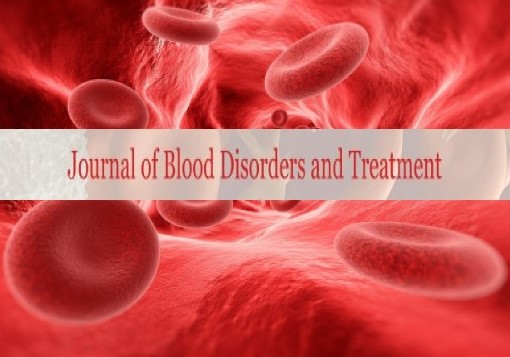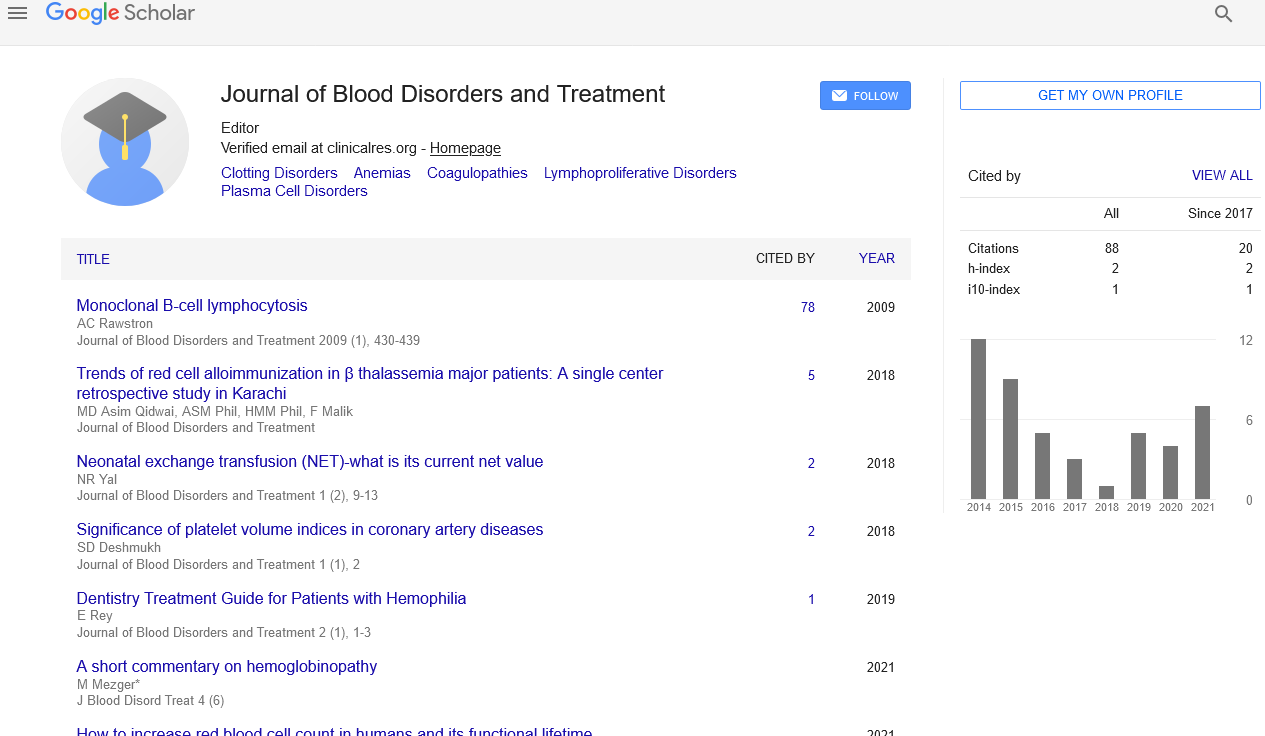Chimeric antigen receptors (CAR) T-cells for acute lymphoblastic leukemia treatment
Received: 08-Dec-2017 Accepted Date: Dec 09, 2017; Published: 05-Jan-2018
Citation: De Lima Oliveira BC. Chimeric antigen receptors (CAR) T-cells for acute lymphoblastic leukemia treatment. J Blood Disord Treat. 2018;1(1):1.
This open-access article is distributed under the terms of the Creative Commons Attribution Non-Commercial License (CC BY-NC) (http://creativecommons.org/licenses/by-nc/4.0/), which permits reuse, distribution and reproduction of the article, provided that the original work is properly cited and the reuse is restricted to noncommercial purposes. For commercial reuse, contact reprints@pulsus.com
Acute lymphoblastic leukemia (ALL) is a very aggressive disorder caused by malignant transformation of lymphoid cell lineage progenitors in bone marrow. Classically, ALL can be originated from B-cell precursor lineage (BCL-ALL), which comprehends majority cases, or T-cell precursor lineage (TCL-ALL) [1]. ALL is a most common type cancer in childhood and large presence of blasts is found in peripheral blood (PB) and bone marrow (BM). In this topic, Cortelazzo detailly reviews main features of ALL, including incidence, risk factors, genetic alterations in both BCL-ALL and TCL-ALL, clinical presentations, and others interesting point [2].
Conventional treatment strategy is based on intensive multi-drug chemotherapy according different protocols. First-rate drugs include vincristine, cyclophosphamide, cytarabine, methotrexate, prednisone, thioguanina, nitrosoureas, anthracyclines, and others. There are various papers published describing therapeutic strategies for the specific manifestations of the disease [3-7]. These therapies are important for the destruction of cancer cells, resulting in decreased blasts counting in patients. However, several problems associated with conventional chemotherapy are observed. For example, most chemotherapy treatments do not reach the brain and marrow areas, so it may be necessary to inject it directly into the cerebrospinal fluid to kill cancer cells in that area. Furthermore, toxicity is a serious side effect observed in the chemotherapy strategy, because the drugs do not selectively act on the cancer cells. Additional effects include hair loss, nausea, vomiting, hemorrhage, diarrhea and susceptibility to infections. Due to the debilitating effects of chemotherapy, new strategies which eliminate or minimize these bad effects are necessary. Thereby, cancer immunotherapy has recently developed as a promising tool for therapeutic strategies. Important advantage of immunotherapy is to enable selectivity to cancer cells and thus avoid many side effects observed in conventional therapies.
Chimeric antigen receptors (CAR) T cells have recently emerged as an immunotherapy component designed to specifically act on a target antigen. In anti-cancer immunotherapy, a CART T cell is a T lymphocyte extracted from own patient, then genetically modified to harbor a recombinant receptor specific against a target tumor antigen and finally infused back into the patient. Most tests using this strategy are currently in clinical phase of study. The results in clinical trials were promising, but side effects have been observed. In a review published in June, Luskin and DeAngelo discusses CAR T cell therapy for ALL and ongoing efforts to improve efficacy and decrease side effects, such as toxicity [8]. Significant limitations described in clinical trials include neurotoxicity, toxicity “on target, off organ” (when target antigen is present in other organs), genotoxicity, hypersensitivity reactions, and other problems, all with varying intensity and frequency.
In this year, Food and Drug Administration (FDA) announced the first approval of a CAR-T cell therapy for kids and young adults with B-cell ALL. This approval was much celebrated and brought new hope for a more specific and efficient therapy for ALL. This result has come through many years of research and is expected to improve the quality of treatment of patients. It is worth noting that in addition to side effects, the high cost of treatment is still an obstacle and the side effects. Although there are challenges to be overcome as in any innovative research, CAR-T cell therapy seems to be the most promising therapeutic tool against cancer, including ALL, since chemotherapy introduction in the 1940s.
REFERENCES
- Terwilliger T, Abdul-Hay M. Acute lymphoblastic leukemia: A comprehensive review and 2017 update. Blood Cancer J. 2017;7(6):e577.
- Cortelazzo S, Ferreri A, Hoelzer D, et al. Lymphoblastic lymphoma. Crit Rev Oncol Hematol. 2017;113:304-17.
- Reiter A, Schrappe M, Ludwig WD, et al. Intensive ALL-type therapy without local radiotherapy provides a 90% event-free survival for children with T-cell lymphoblastic lymphoma: a BFM group report. Blood. 2000;95(2):416-21.
- Lee JW, Cho B. Prognostic factors and treatment of pediatric acute lymphoblastic leukemia. Korean J Pediatr. 2017;60(5):129-37.
- Schmiegelow K, Müller K, Mogensen SS, et al. Non-infectious chemotherapy-associated acute toxicities during childhood acute lymphoblastic leukemia therapy. F1000Res. 2017;6:444.
- Rudin S, Marable M, Huang RS. The promise of pharmacogenomics in reducing toxicity during acute lymphoblastic leukemia maintenance treatment. Genomics Proteomics Bioinformatics. 2017;15(2):82-93.
- Schmiegelow K, Nielsen SN, Frandsen TL, et al. Mercaptopurine/methotrexate maintenance therapy of childhood acute lymphoblastic leukemia: Clinical facts and fiction. J Pediatr Hematol Oncol. 2014;36(7):503-17.
- Luskin MR, DeAngelo DJ. Chimeric antigen receptor therapy in acute lymphoblastic leukemia clinical practice. Curr Hematol Malig Rep. 2017;27.17.





